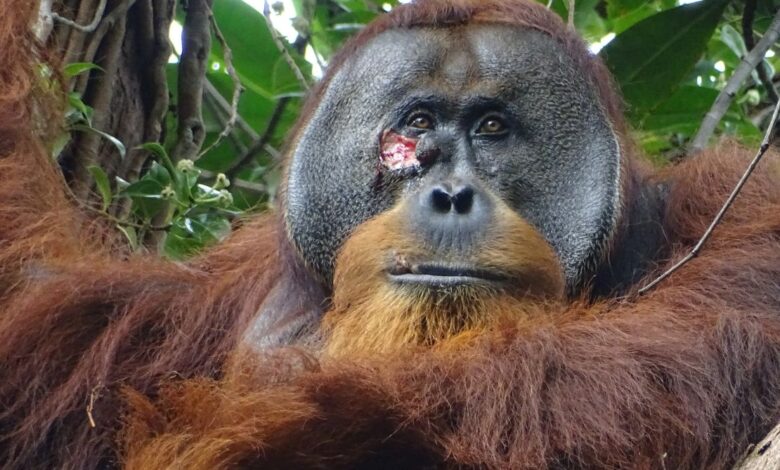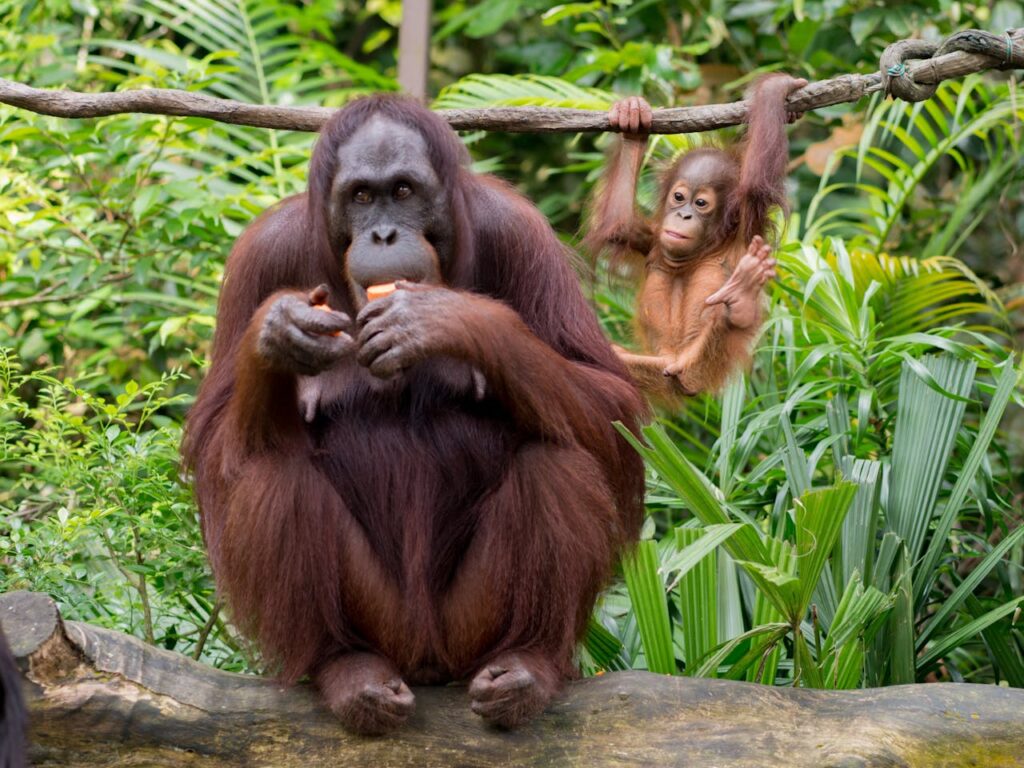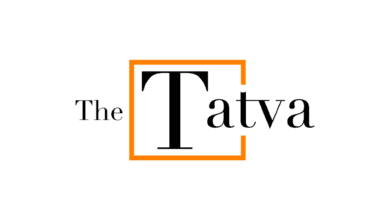Breakthrough in animal behavior as Orangutan self-medicates and heals wound
This incident implies that previously believed to be exclusive to humans, health-related behaviors are capable of being exhibited by orangutans and maybe other animals

An important first in the study of non-human primates and their use of natural remedies was made when it was discovered that an orangutan named Rakus had been observed applying medicinal herbs to a face wound in a remarkable demonstration of self-medication. This event, which happened in the deep rainforests of Sumatra, Indonesia, raises important questions concerning the degree to which wild animals recognize and make use of the therapeutic qualities of plants as well as offering insightful information about the cognitive capacities of orangutans.
Researchers noticed the disturbance, which they assumed to be a brawl between male orangutans. Subsequently, a man in his mid-30s observed Rakus masticating leaves and applying them to an injury that promptly and entirely healed. This action is especially remarkable since it represents the first instance of intentional self-medication by a wild animal using a plant with recognized therapeutic benefits that scientists have observed.

Akar Kuning, a liana plant, was being used by Rakus, a dominating male with noticeable cheek pads. Possibly from the altercation with another monkey, he had cut an open wound on his right cheek. He chewed the herb to make a paste and applied it to the wound. Amazingly, after applying multiple times over roughly seven minutes, Rakus used undamaged liana pulp to cover the incision like a bandage.
Fibraurea tinctoria, the plant in question has antibacterial and anti-inflammatory qualities and is utilized in traditional medicine by the locals. The selection of this specific plant by Rakus implies a certain amount of comprehension and deliberateness in his activities. The wound exhibited no evidence of infection and healed entirely after five days of therapy, demonstrating the potency of the plant’s medical qualities.
This episode has major implications for our comprehension of animal behavior and cognition. It implies that previously believed to be exclusive to humans, health-related behaviors are capable of being exhibited by orangutans and maybe other animals, as well as a more sophisticated comprehension of their surroundings.
Research into wild animals’ usage of natural pharmacopeia and their self-medication habits is made possible by Rakus’ deliberate use of medicinal plants. The discovery further emphasizes the need for conservation efforts, since habitat loss may result in the extinction of important traditional knowledge held by animals such as orangutans. Subsequent investigations will concentrate on comprehending the scope of this comprehension and whether it is innate or acquired behavior.
You might also be interested in – Ratan Tata finally completes his ‘pet’ project, to open an animal hospital in Mumbai



